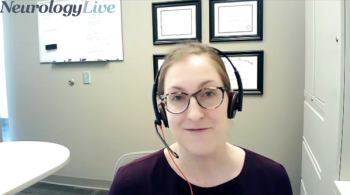
The child neurologist and neuroimmunologist at Nationwide Children’s Hospital delved into the unique challenges and research objectives surrounding MOG antibody–associated disease. [WATCH TIME: 3 minutes]

The child neurologist and neuroimmunologist at Nationwide Children’s Hospital delved into the unique challenges and research objectives surrounding MOG antibody–associated disease. [WATCH TIME: 3 minutes]
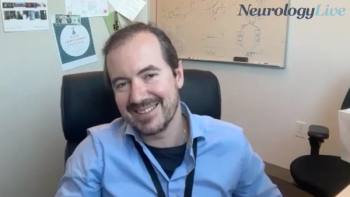
The associate researcher at the University of California, San Francisco discussed a refined EAE model that could better replicate MS pathology, enabling deeper insights into demyelination, neuronal loss, and remyelination. [WATCH TIME: 6 minutes]
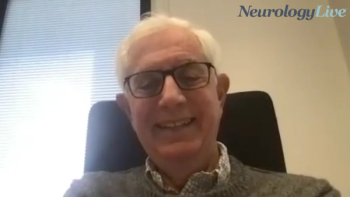
The professor of neurology and neurosurgery at McGill University discussed the evolving understanding of neuroimmune interactions in MS, highlighting how these interactions contribute to disease progression and potential repair mechanisms. [WATCH TIME: 4 minutes]
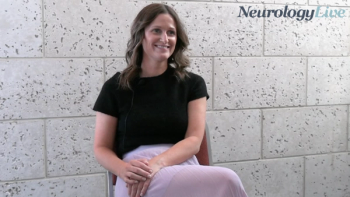
The assistant professor in the department of neurology at Mount Sinai talked about a recent study that highlighted how socioeconomic status and diet could significantly impact physical and cognitive outcomes in patients with MS. [WATCH TIME: 2 minutes]
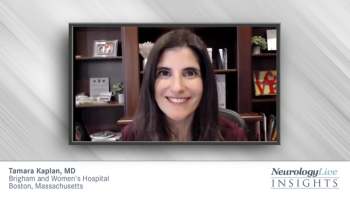
Panelist discusses how treatment options for neurogenic bladder include pharmacological approaches such as anticholinergics, localized interventions such as botulinum toxin injections, and neuromodulation techniques (posterior tibial and sacral nerve stimulation). Surgery serves as a last resort when conservative treatments fail.
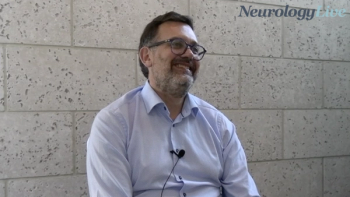
The professor of neurology at University of Colorado School of Medicine discussed the evolving landscape of MS treatment, highlighting the role of personalized medicine and biomarker-driven decision-making. [WATCH TIME: 5 minutes]
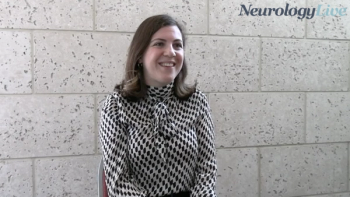
The instructor in the department of radiology at Weill Cornell Medicine discussed how structural and functional brain connectomes can potentially improve predictions of MS progression and treatment response. [WATCH TIME: 4 minutes]
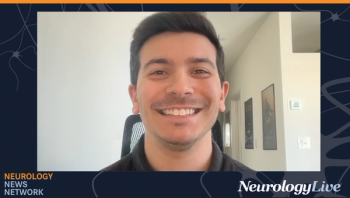
Neurology News Network. for the week ending March 8, 2025. [WATCH TIME: 3 minutes]
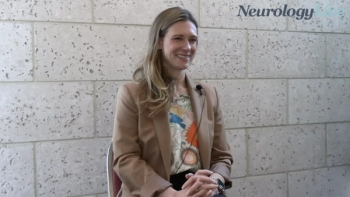
The professor of neurosurgery and physiology at University of Colorado School of Medicine talked about how vagus nerve stimulation may promote remyelination and functional recovery in multiple sclerosis. [WATCH TIME: 4 minutes]

The child neurologist and neuroimmunologist at Nationwide Children’s Hospital provided clinical insight on the complexities of treating pediatric MOGAD, including treatment options, decision-making factors, and emerging therapies. [WATCH TIME: 4 minutes]
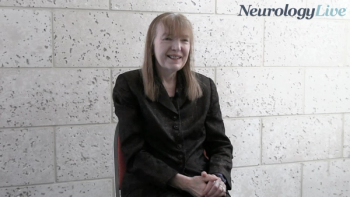
At the 2025 ACTRIMS Forum, the director of the MS Comprehensive Care Center at Stony Brook Medicine discussed the evolution of high-efficacy treatments for MS. [WATCH TIME: 4 minutes]

The assistant professor in the neurology department at the University of Utah in Salt Lake City discussed advancing personalized medicine for patients with neuromyelitis optica spectrum disorder, a rare disorder of the central nervous system. [WATCH TIME: 4 minutes]
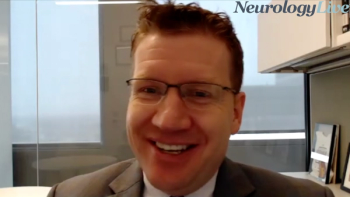
The pediatric neurologist at Children’s Hospital of Philadelphia gave perspective on some of the main issues the clinical community is figuring out with gene therapies and their integration to clinical practice. [WATCH TIME: 3 minutes]

Panelist discusses how neurogenic bladder in neurological conditions manifests distinctly based on lesion location. Patients with multiple sclerosis typically experience detrusor overactivity and sphincter dyssynergia, leading to urgency and retention. Parkinson disease commonly presents with overactive bladder symptoms and nocturia due to impaired basal ganglia control. Cauda equina syndrome and lumbar disc herniation often result in detrusor areflexia and decreased sensation, causing retention and overflow incontinence.
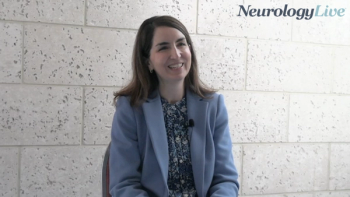
At the 2025 ACTRIMS Forum, the system chief of neuroimmunology and multiple sclerosis at OhioHealth discussed the need for better tools to detect MS progression. [WATCH TIME: 3 minutes]
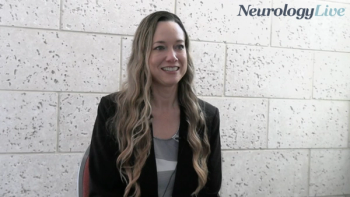
The director of the MS and Demyelinating Disease Center at Texas Tech University Health Sciences Center talked about early diagnosis, timely treatment, and minimizing therapy transition gaps to prevent severe disability in patients with NMOSD. [WATCH TIME: 4 minutes]
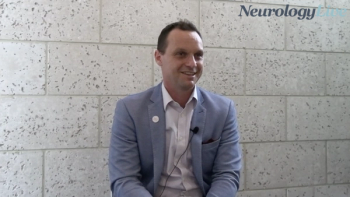
The assistant professor of neurology and neurosurgery at McGill University discussed the role of paramagnetic rim lesions as potential biomarkers of compartmentalized inflammation in MS. [WATCH TIME: 4 minutes]
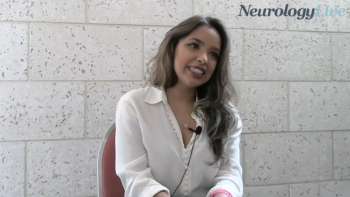
The founder and executive director of the Sumaira Foundation talked about how the landscape of NMOSD treatment has drastically improved with FDA-approved therapies, while noting that accessibility and awareness remain significant challenges. [WATCH TIME: 4 minutes]
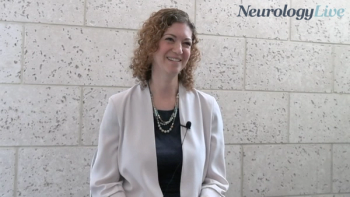
The assistant professor of medicine at the University of Toronto talked about emerging research on how prodromal symptoms may aid in the early identification of multiple sclerosis and neuromyelitis optica spectrum disorder. [WATCH TIME: 6 minutes]
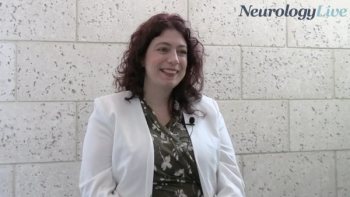
At the 2025 ACTRIMS Forum, the assistant professor of neuroimmunology at McGill University talked about examining immune cell signatures to track disease worsening in multiple sclerosis. [WATCH TIME: 4 minutes]
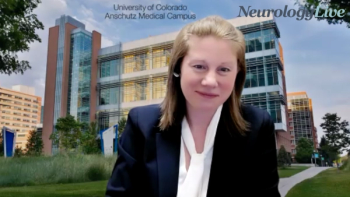
The autoimmune neurology program director at the University of Colorado highlighted the potential of CAR T-cell therapy for treating autoimmune neurologic diseases like progressive forms of multiple sclerosis. [WATCH TIME: 3 minutes]
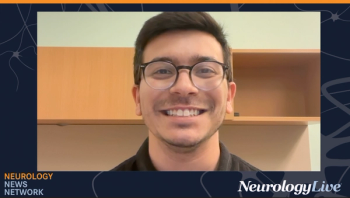
Neurology News Network. for the week ending March 1, 2025. [WATCH TIME: 3 minutes]

The autoimmune neurology program director at the University of Colorado talked about the emerging use of CAR T-cell therapy, a breakthrough from oncology, now being explored in autoimmune neurologic diseases like multiple sclerosis. [WATCH TIME: 3 minutes]

The vice president and senior global program lead for Hematology and Cell Therapy at BMS provided an overview behind the mechanism and early phase 1 data of BMS-986353 in various forms of multiple sclerosis. [WATCH TIME: 4 minutes]
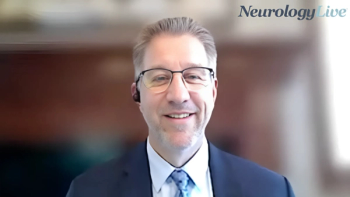
The staff neurologist at the Mellen Center for Multiple Sclerosis at Cleveland Clinic discussed how the CALLIPER trial’s lower proportion of patients with gadolinium-enhancing lesions mirrors clinical practice more closely than other progressive MS trials. [WATCH TIME: 2 minutes]

The staff neurologist at the Mellen Center for Multiple Sclerosis at Cleveland Clinic discussed key insights into patient characteristics and lesion differences of the CALLIPER Trial in retrospect to other studies. [WATCH TIME: 4 minutes]
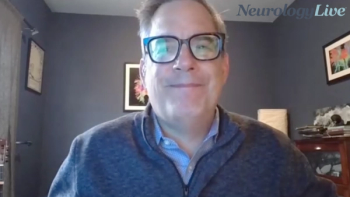
The executive vice president of research at National MS Society talked about how advancements in the field of neurology are shaping new approaches to diagnosing, monitoring, and treating multiple sclerosis. [WATCH TIME: 5 minutes]

The executive vice president of research at National MS Society discussed the role of compartmentalized inflammation, microglial interactions, and emerging therapeutic targets in multiple sclerosis. [WATCH TIME: 4 minutes]
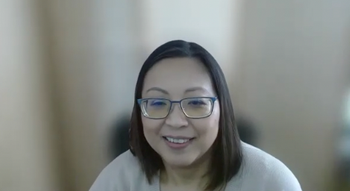
The neurooncologist from the University of California Los Angeles provided clinical insight on the impact of a new treatment option for adults and children with neurofibromatosis type 1 that are not amenable to complete surgical resection. [WATCH TIME: 2 minutes]
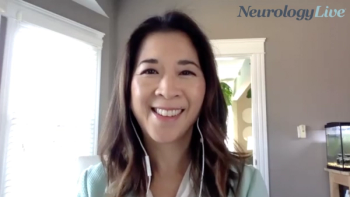
A physician assistant specializing in Parkinson disease discussed advancements in neurology aimed at enabling personalized treatment, continuous monitoring, and improved disease management. [WATCH TIME: 4 minutes]